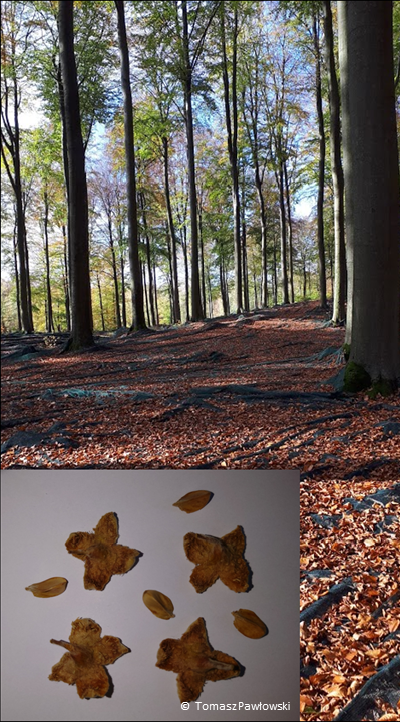Regulation of European beech dormancy and germination mechanisms in variable environments

SémIdeev
28/03/2025
12:00:00
Pawłowski T.A., Institute of Dendrology, Polish Academy of Sciences, Poland
IDEEV - Salle Rosalind Franklin
Seeds have evolved from the very beginning of their existence to become efficient detectors of environmental change while also exhibiting specific variations influenced by past environmental fluctuations. One key adaptation to unfavourable conditions is dormancy, a phenomenon that synchronizes seed germination and plant establishment with the surrounding environment. While adaptations have a genetic basis, environmental factors determine whether these mechanisms will function effectively, ultimately influencing the production of healthy seeds and seedlings.
Climate change models predict that some species will experience a significant reduction in suitable habitat areas. As climate change alters species’ geographical distribution, their survival will depend on their plasticity. In response to climate variations, seed dormancy has changed over both long and short timescales. Long-term effects arise from sustained climatic differences across locations, leading to inheritable dormancy variations at species, ecotype, and clinal levels. In contrast, short-term effects result from specific weather conditions during seed maturation, soil storage, and germination.
Understanding how seed dormancy responds to local climate variations in both the short and long term is essential for assessing how environmental changes, including climate warming, impact germination and plant regeneration. The influence of climate on seed germination highlights the need to understand how shifting environmental conditions will affect plant development. While numerous physiological and molecular mechanisms regulating dormancy have been identified in controlled laboratory settings, little is known about how seeds integrate these complex mechanisms to regulate dormancy in variable natural environments.
A deeper understanding of plant responses to climate change requires extensive research on the impact of environmental conditions on seed germination. The mechanisms underlying climate adaptation are crucial for predicting species’ potential to cope with climate warming. Integrating data from various biological disciplines—such as ecology, transcriptomics, proteomics, and epigenetics—could provide valuable insights into the processes controlling seed germination. This work aims to explore the mechanisms of germination adaptation across diverse environments, emphasizing their potential role in responding to a changing climate.
Lien visio: https://orsay.bbb.cnrs.fr/b/ble-qqm-xjk-yn5